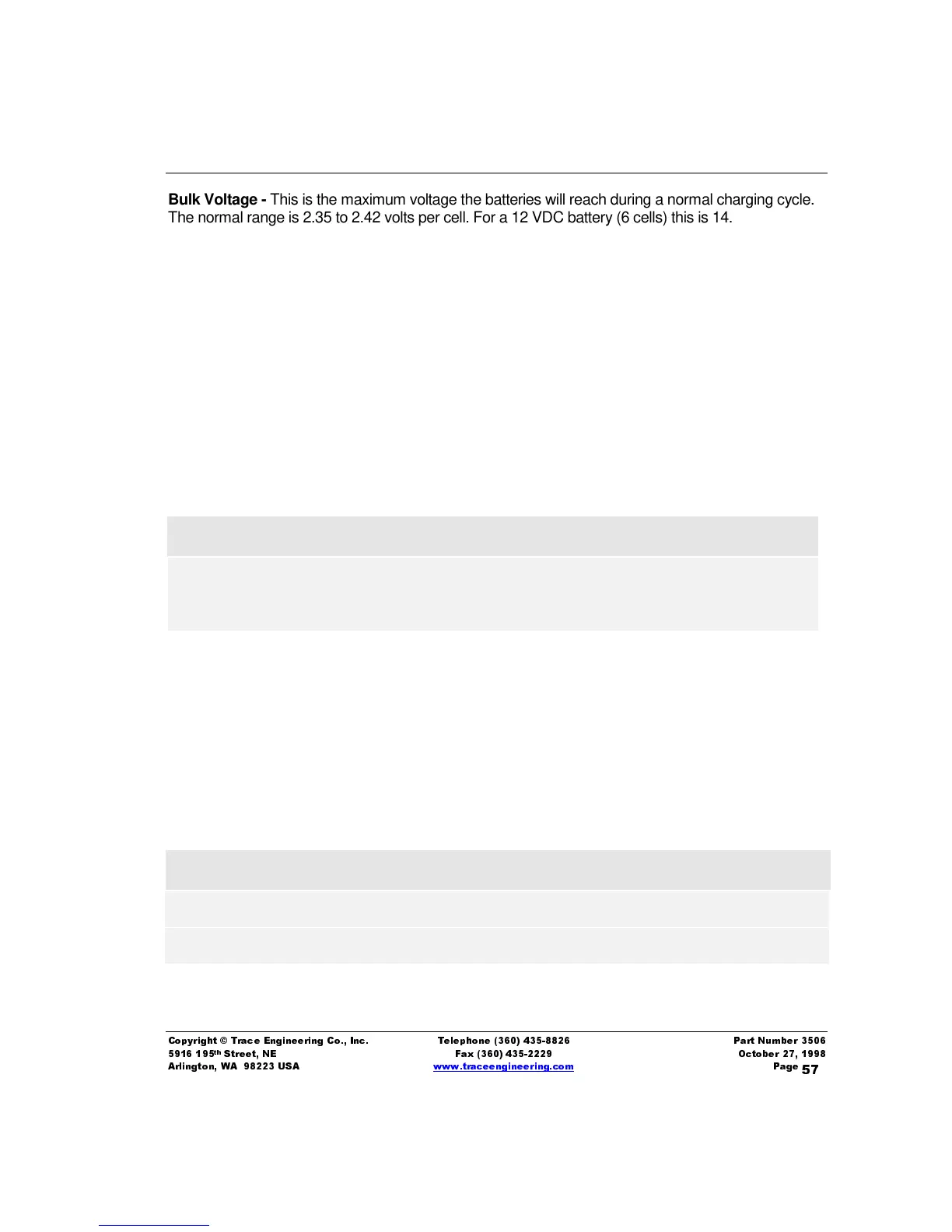7+5((67$*(%$77(5<&+$5*(5
&RS\ULJKW7UDFH(QJLQHHULQJ&R,QF 7HOHSKRQH 3DUW1XPEHU
WK
6WUHHW1( )D[ 2FWREHU
$UOLQJWRQ:$86$ ZZZWUDFHHQJLQHHULQJFRP 3DJH
Bulk Voltage - This is the maximum voltage the batteries will reach during a normal charging cycle.
The normal range is 2.35 to 2.42 volts per cell. For a 12 VDC battery (6 cells) this is 14.1 to 14.5
volts. Liquid electrolyte batteries are charged to a higher voltage, while gel-cell batteries have a
lower voltage.
This stage is initiated when AC is applied to the AC input of the inverter, if battery voltage is less than
12.6 volts. It is terminated when the batteries reach the Bulk Charge Voltage. During this stage the
charger LED glows steady orange. Stage One charges the batteries at a constant current. The level
of charge for this phase can be adjusted using the RC7 remote control.
Absorption - During this part of the charge cycle, the batteries are held at the bulk voltage and
accept whatever current is required to maintain this voltage. This ensures full charging, “topping” off
the batteries. At this point the charge current begins to taper off and the charger LED blinks orange.
As the charge cycle progresses, the current required to hold the battery voltage constant gradually
reduces. After ninety minutes of absorption charging, the voltage is allowed to fall to the float voltage
setting — Stage Three.
1RWH
If there are DC loads on the batteries, the voltage may never rise to a level high
enough to initiate the Absorption stage.
Float Voltage - This is the voltage at which the batteries will be maintained after they have been
charged. A range of 13.4 -13.5 volts for 12-volt systems is appropriate for most sealed and non-
sealed batteries. 13.5 volts is an appropriate setpoint for gel-cell batteries, and 13.4 volts is common
for liquid lead-acid types.
When AC is connected to the inverter/charger, and battery voltage is 12.6 volts or higher, the charge
will skip Bulk and Absorption modes and go directly into Float mode. The charger remains in the
float stage until the unit loses AC input power (i.e. generator or shore power). During this stage, the
charger flashes green about four times per second. The purpose of stage three is to maintain the
batteries at a voltage that will hold full charge but not gas the batteries.
1RWH
When DC loads are placed on the battery, the charger will deliver currents up to
the Maximum Charge Rate setting while maintaining the float voltage.
